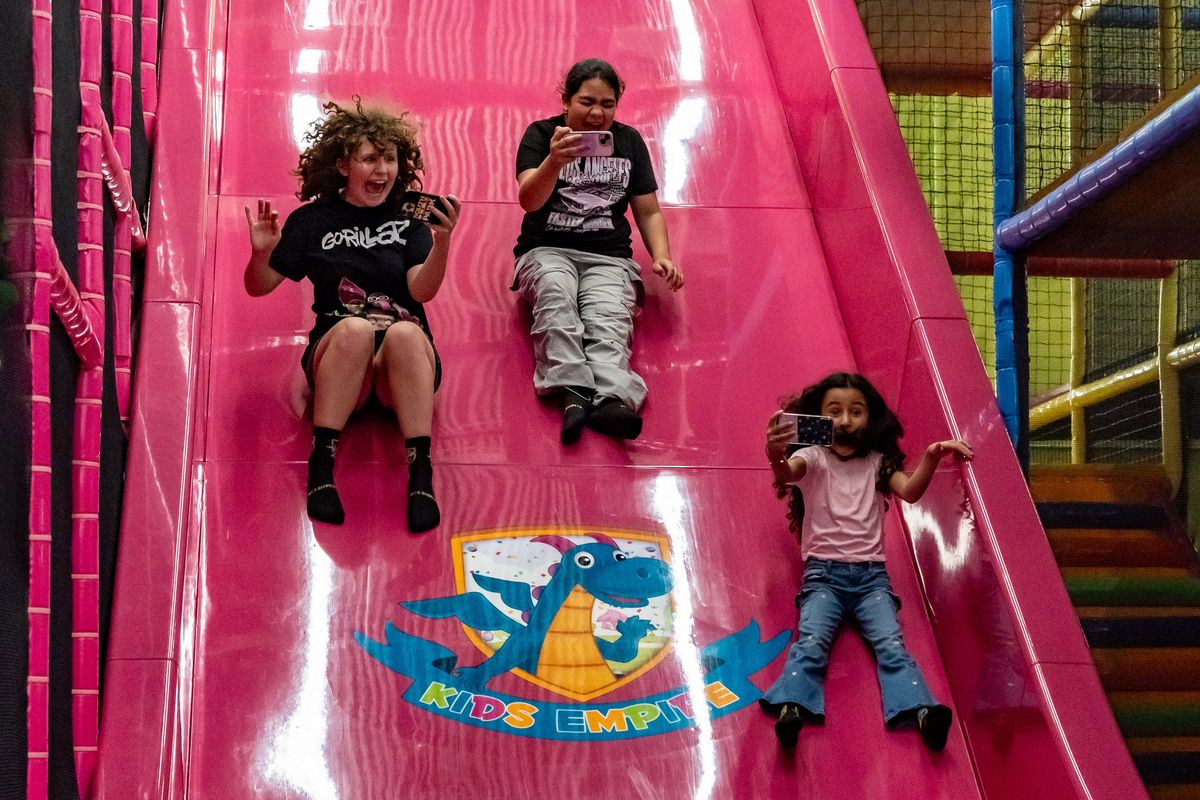Travel has the incredible power to push us outside our bubbles — and change our lives for the better.
That’s what inspired photographer Morgane J.A. — founder of the nonprofit Lumière, which uses artistic projects to raise money for charities — to start collecting images from her travels in a book, aptly titled "Travellers."
“When you travel, you go outside your comfort zone, you experience more, you live more,” she explained over email.
Morgane J.A. in Iceland. Photo by Aida Mark.
The book features photos from people Morgane has met on her travels and showcases the power and importance not just of traveling, but of storytelling too. It's a celebration of the effect travel can have in broadening horizons and expanding worldviews.
Here are just some of the amazing destinations Morgane and her explorer friends have visited that you can find in the book:
1. Photographer Mathis Dumas climbed the Dolomites in Italy for this breathtaking view.
Photo by Mathis Dumas.
2. This surreal sand boat was captured by explorer Victor Habchy at Burning Man.
Photo by Victor Habchy
3. As was this lonely bike rider in a dust cloud.
Photo by Victor Habchy.
4. Photographer Morgan Maassen captured another photographer diving beneath the waves in Teahupo'o, Tahiti.
Photo by Morgan Maassen.
5. Explorer George Turner captured the rugged landscape on Isle of Skye.
Photo by George Turner.
6. This breathtaking view of Engadin, Switzerland, was spotted by photographer Aida Mark.
Photo by Aida Mark.
7. In Mount Baker-Snoqualmie National Forest, photographer Daniel Ernst caught a quiet moment.
Photo by Daniel Ernst.
8. And in Yosemite National Park, adventurer Morgan Phillips captured a shot of this solitary figure looking out over Taft Point.
Photo by Morgan Phillips.
The mission of the Lumière projects and the "Travellers" book is to "spread light" — which Morgane defines as giving something of yourself to grow as a person.
“This is the goal of this project, to bring something positive, some light, while helping a good cause and spreading more light,” she wrote.
An issue near and dear to Morgane is the conservation of nature and wildlife. She hopes that by sharing these amazing destinations and encouraging others to help, we can conserve these amazing places for future generations to visit.
“The protection of the environment should be one of our main focus as it impacts all of us,” she said, which is why she has partnered with the World Wildlife Fund and will be donating the book's proceeds to the charity.
So, get inspired! Go out, explore, and learn something about yourself and the world. Start your next adventure. There's no better time than now.


 Sandra’s granddaughter, E’s daughter, and another friend at an indoor park (July 2025)
Sandra’s granddaughter, E’s daughter, and another friend at an indoor park (July 2025) One of the ladies Sandra sponsored from Venezuela and her partner during Sandra’s first visit to meet her (December 2023)
One of the ladies Sandra sponsored from Venezuela and her partner during Sandra’s first visit to meet her (December 2023) A handwritten note with the words "good job!" on it
A handwritten note with the words "good job!" on it A man smiling
A man smiling A dad with his kid on his shoulders
A dad with his kid on his shoulders Team collaboration and brainstorming session at the office.
Team collaboration and brainstorming session at the office. Man focused on his phone outdoors in casual attire.
Man focused on his phone outdoors in casual attire. Team debate heats up, leaving one member stressed.
Team debate heats up, leaving one member stressed. Office debate: exchanging ideas with passion.
Office debate: exchanging ideas with passion. Im Old Tv Shows GIF by PBS SoCal
Im Old Tv Shows GIF by PBS SoCal  Kelsey Grammer as Dr. Frasier Crane in 1996By US Treasury Dept. Public Domain
Kelsey Grammer as Dr. Frasier Crane in 1996By US Treasury Dept. Public Domain naked matthew broderick GIF
naked matthew broderick GIF  Oprah Winfrey Reaction GIF
Oprah Winfrey Reaction GIF  Ryan Seacrest, television and radio host and producer, hosts the 2016 USO Gala, Washington, D.C., Oct. 20, 2016.via Jim Greenhill from McLean,
Ryan Seacrest, television and radio host and producer, hosts the 2016 USO Gala, Washington, D.C., Oct. 20, 2016.via Jim Greenhill from McLean,